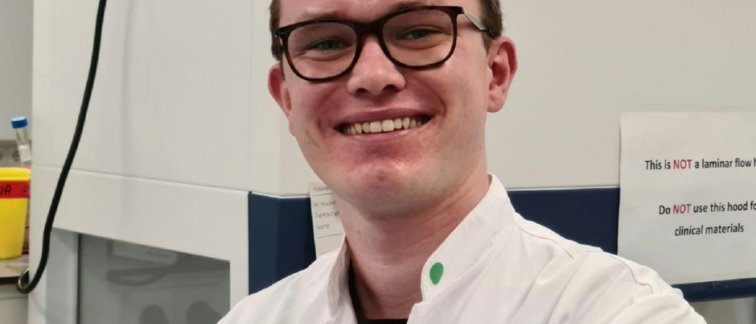Brinkkemper was hired at Amsterdam UMC to do research on HIV. When the corona pandemic broke out, he and many others switched to SARS-CoV-2 research, which was given top priority. 'Before the pandemic, when I told people I was working on vaccines, the reaction was often "Oh, nice. Now there is much more interest.'
What have you done research on?
'At the moment, almost all infections in the Netherlands are caused by the delta variant. This is the dominant variant worldwide. The original Wuhan variant of SARS-CoV-2, against which the current vaccine was designed, is no longer circulating. We know that vaccine protection against some variants is lower than for the original virus. What we examined in this study in laboratory animals is whether a third vaccination increases the number of antibodies against the variants. This indeed appears to be the case.'
In other words, an extra dose of the same vaccine works?
'Yes, the vaccine we have now can be used to combat the variants that are currently circulating.'
And do these vaccines also work against the omicron variant?
We haven't been able to test that yet, because we first have to make the omicron variant in the lab. Once we have that, we can do the research fairly quickly because we have serum samples, taken from vaccinated people and animals, that we can test immediately. We can then find out whether these samples contain antibodies that neutralize the omicron variant.'
You make the virus yourself?
'Yes, there are several ways you can determine whether antibodies induced by a vaccine can neutralize the virus. This can be done with the wild-type virus that people carry. They use it at Erasmus MC in Rotterdam, among other places. However, this must be done in a lab with a high safety level.
We test with a pseudovirus that we make in the lab. That also has to be done in a lab with a high safety level, but it is less risky. We use a virus backbone for that with some modifications that make it less dangerous. To that we add a spike protein of the variant we want to test against, in this case the omicron variant.'
Could the current evening lockdown have been prevented if the Netherlands had started booster jabs earlier?
'I think if you had started a few months earlier, we would have seen results of that by now. Although I don't think it would have been a world of difference, it couldn't have prevented this wave. Some of the people who are in the hospital now probably would have been spared that.'
Why are the boosters only for the elderly?
'The amount of antibodies in the blood that is generated after a vaccination decreases over time. In the elderly and people with a weaker immune system this will happen faster than in young people. So they need to be helped first. They are also the first to be vaccinated. Ultimately, I think everyone, young and old, will benefit from a booster shot.'
Are three vaccinations enough?
'It's hard to estimate, but I don't think this will be our last jab. I can imagine it will become a recurring vaccine, as with the flu vaccinations.'
Isn't it a matter of developing a better vaccine that protects against multiple variants?
'We are working on a study in which we combine the spikes of multiple variants into one vaccine. The vaccines that are currently used consist of the spike protein of one virus. By combining spikes from multiple variants into one vaccine, we are trying to elicit an immune response with more diversity that could potentially better protect against a future variant.
The omicron variant is actually a very good opportunity to test that out. We have in fact immunized animals with multiple spikes, and now we can start to see if those animals are better protected against that variant than animals that have only had the original vaccine. The results will hopefully be published next semester.'
You can read the original Dutch text here.
Text: Sija van den Beukel

